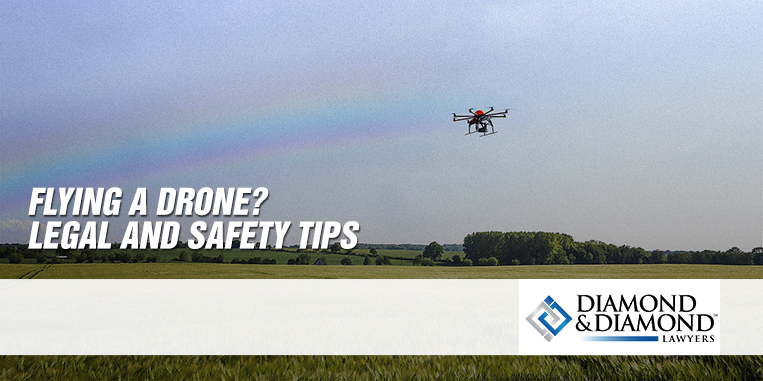Drones can be a fun and exciting way to enjoy the outdoors. Their light bodies can fly through the air with ease, and they are often simply amazing to watch. Some flyers can even do stunts and tricks, which makes the experience even more exciting.
While drones can be a lot of fun, they can also be dangerous in some circumstances as well. In fact, Transport Canada may need to be involved in the flight if your drone meets certain requirements. Do you know when and where it is safe and legal to fly your drone? You should.
Getting Permission to Fly Your Drone
Even recreational drones, which are generally considered simple toys, must follow certain rules for flight. However, if your drone is between 250 g and 35 kg, you do not need special permission from Transport Canada to enjoy your drone. If your drone does not fall within those guidelines, you may need to register your drone to fly it legally. In addition, if you fly your drone as part of your work or for research purposes, you may need to register it.
Those who must get permission to fly their drone have to apply for a Special Flight Operations Certificate as set out in the Canadian Aviation Regulations. The certificate provides specific requirements you must follow with regard to altitude and distances from people and property. You must also coordinate with air traffic services for flight as well. Nonetheless, there are some exceptions to the general requirement if your drone is of smaller weight.
Failing to follow the rules and regulations as set out by Transport Canada can not only risk harming someone or damaging property, it can also result in a fine of up to $25,000.
Recreational Flying Regulations
Transport Canada sets out specific rules and regulations that recreational drone operators must follow to help ensure the safety of you and those around you. You are not permitted to fly your drone in the following circumstances:
- More than 90 meters above ground
- Closer than 75 meters from buildings, crowds (or people generally), and vehicles
- Closer than 9 km from any airport, seaplane base, heliport, or any other location where aircraft will take off or land
- Within 9 km of a forest fire
- Within restricted or controlled airspace
- In clouds or at night
- Anywhere where it might interfere with first responders or police activity
- In national parks
- Over the Canadian border
You should also be able to see your drone at all time while flying it. You must be at least within 500 meters of your drone at all times. Be sure to also clearly mark your drone with your name, telephone number, and address.
Failure to adhere to any of these restrictions could result in a fine of up to $3,000.
Additional Drone Safety Tips
In addition to those restrictions required by law, you may also want to engage in some other drone-safety practices. For example, you should only fly your drone in the daylight and in good weather to avoid problems with loss of control or the risk of losing your drone. Be sure to also check that your drone is functioning properly before takeoff. Inspect the propellers and fully charge the battery before your drone leaves the ground.
It is also important that you respect other people’s privacy. You should not take photos or video without permission. Generally avoiding flying over private property is a good idea. Certain areas may also have “No Drone Zone” designations because it is either illegal or unsafe to fly your drone there. Be sure to adhere to these zones.
If you are unsure about the drone laws or if a drone has caused an accident, contact our firm. We can help you navigate the rules and determine if you have legal options if a drone cause injuries or property damage. Call Diamond and Diamond today: 1-800-567-HURT.
